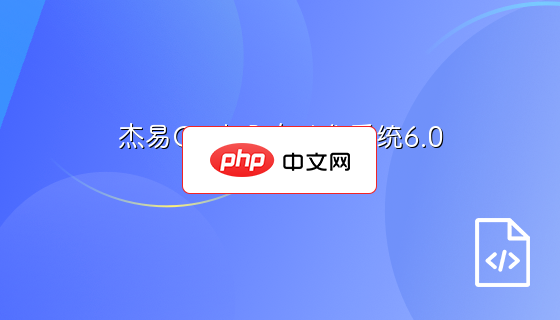
1. WordPress 文件间变量传递的挑战
在WordPress主题或插件开发中,我们经常需要将代码拆分成多个文件,例如使用 get_template_part() 来包含模板片段。然而,当需要在这些文件之间共享特定变量时,get_template_part() 的默认行为可能无法直接满足需求。虽然 get_template_part() 提供了 args 参数用于传递数据,但这些数据通常以数组形式在被包含文件中通过 global $args 或直接 $args 访问,而不是像普通 include 那样将变量直接解包到当前作用域。这使得一些开发者,特别是初学者,在尝试直接访问变量时遇到困难。
例如,在 customtemplate.php 中尝试通过 get_template_part() 传递 $final_cat_url 变量,并在之后 echo $args['my_final_cat_url'] 的做法,并不能在 customtemplate.php 中直接访问到 last-category.php 内部的 $args 变量,因为 $args 的作用域仅限于被包含的文件。
2. 自定义变量包含函数:includeWithVariables
为了更灵活地在文件之间传递变量,并使其在被包含文件中像普通变量一样直接可用,我们可以创建一个自定义函数。这个函数结合了 PHP 的 extract() 和输出缓冲 (ob_start() / ob_get_clean()) 机制,能够优雅地解决上述问题。
2.1 函数代码
将以下代码添加到您的主题的 functions.php 文件中:
/**
* 包含一个PHP文件,并在其作用域内传递变量。
*
* @param string $filePath 要包含的文件的路径。
* @param array $variables 一个关联数组,键为变量名,值为变量值。
* @param bool $print 是否直接输出文件内容,默认为 true。
* @return string|null 如果 $print 为 false,则返回文件内容;如果文件不存在,则返回 null。
*/
function includeWithVariables($filePath, $variables = array(), $print = true){
$output = NULL;
// 检查文件是否存在
if(file_exists($filePath)){
// 将变量从关联数组中提取到局部命名空间
// 例如,如果 $variables 包含 'final_cat_url' => 'some_url'
// 那么在被包含的文件中,可以直接使用 $final_cat_url
extract($variables);
// 启动输出缓冲,捕获被包含文件的所有输出
ob_start();
// 包含模板文件
include $filePath;
// 结束缓冲并获取其内容
$output = ob_get_clean();
}
// 根据 $print 参数决定是直接输出还是返回内容
if ($print) {
print $output;
}
return $output;
}2.2 函数解析
- file_exists($filePath): 确保要包含的文件存在,避免 PHP 错误。
- extract($variables): 这是实现变量传递的关键。它将 $variables 数组的键作为变量名,将数组的值作为变量值,并在当前作用域(即 includeWithVariables 函数内部,进而传递给 include $filePath 的作用域)中创建这些变量。这意味着在被包含的文件中,您可以直接使用 $final_cat_url 而不是 $variables['final_cat_url']。
- ob_start() 和 ob_get_clean(): 这对函数用于输出缓冲。ob_start() 开启一个新的输出缓冲区,之后所有发送到浏览器的内容都会被捕获而不是直接输出。include $filePath 会执行被包含文件的代码并产生输出。ob_get_clean() 结束缓冲,并返回缓冲区中的所有内容,同时清空缓冲区。这使得函数能够控制何时以及如何输出被包含文件的内容。
- $print 参数: 允许您选择是直接输出被包含文件的内容,还是将其作为字符串返回,提供了更大的灵活性。
3. 如何使用 includeWithVariables
一旦您将 includeWithVariables 函数添加到 functions.php,就可以在您的模板文件或任何需要的地方使用它。
3.1 在调用文件中传递变量
假设您想在 customtemplate.php 中使用 /custom/last-category.php 文件,并向其传递 $final_cat_url 变量。
在 customtemplate.php 中:

基于Intranet/Internet 的Web下的办公自动化系统,采用了当今最先进的PHP技术,是综合大量用户的需求,经过充分的用户论证的基础上开发出来的,独特的即时信息、短信、电子邮件系统、完善的工作流、数据库安全备份等功能使得信息在企业内部传递效率极大提高,信息传递过程中耗费降到最低。办公人员得以从繁杂的日常办公事务处理中解放出来,参与更多的富于思考性和创造性的工作。系统力求突出体系结构简明
$final_cat_url)); // 注意:此时 $final_cat_url 变量的值并未在 customtemplate.php 的当前作用域中改变 // 如果需要在 customtemplate.php 中使用修改后的变量,被包含文件需要显式返回 // 或使用其他共享机制(如全局变量、对象属性等) ?>
路径注意事项: includeWithVariables 接受的是文件系统路径。如果您的文件位于主题根目录下的 custom 文件夹中,通常使用 get_template_directory() . '/custom/last-category.php' 来获取正确的绝对路径。
3.2 在被包含文件中接收和使用变量
在 /custom/last-category.php 文件中,您可以直接访问 $final_cat_url 变量:
最后分类的URL是: ' . esc_url($final_cat_url) . ''; } else { echo '未获取到最后分类的URL。
'; } // 您也可以在此文件中定义新的变量,但它们不会自动返回到调用文件 $some_local_variable = 'This is local to last-category.php'; ?>
4. 与 get_template_part 的对比与优势
- 直接变量访问: includeWithVariables 的主要优势在于 extract() 函数。它允许被包含文件直接以变量名(如 $final_cat_url)访问传递进来的数据,这与传统的 PHP include 行为更为一致,对于习惯这种方式的开发者来说更加直观。
- 作用域控制: get_template_part() 的 args 参数通常通过 global $args 或在函数内部直接访问 $args 来获取。includeWithVariables 则通过 extract() 将变量直接注入到被包含文件的局部作用域中。
- 灵活性: includeWithVariables 提供了更细粒度的控制,例如是否直接输出内容。
- 适用场景: 当您需要将一个文件作为独立的脚本片段运行,并且需要将一组预定义的变量“注入”到其执行环境中时,includeWithVariables 是一个非常强大的工具。而 get_template_part() 更侧重于包含可复用的主题模板片段,其 args 机制对于向这些片段传递配置或数据也很有效,但变量的访问方式有所不同。
5. 注意事项与最佳实践
- 变量命名冲突: extract() 函数的强大之处在于它会将数组键转换为变量名。如果 $variables 数组中的键与被包含文件中已存在的变量名相同,extract() 可能会覆盖现有变量,导致意外行为。因此,在命名传递的变量时,请务必小心,并尽量使用独特的、描述性的名称。
- 文件路径: 确保 includeWithVariables 函数中提供的 $filePath 是正确的,并且可以被 PHP 访问。使用 get_template_directory() 或 get_stylesheet_directory() 结合相对路径是获取主题文件安全路径的推荐方法。
- 安全性: 永远不要直接将用户输入未经处理地作为文件路径或变量值传递给 include 或 extract。务必对所有输入进行验证和清理。
-
替代方案: 对于更复杂的全局数据共享,或者数据需要在多个不直接包含的文件之间长期存在,可以考虑使用 WordPress 的其他机制:
- 全局变量: 使用 global $my_variable; 但应谨慎使用,避免污染全局命名空间。
- WordPress 选项/设置: 用于存储持久化配置数据。
- Transients (瞬态数据): 用于存储临时缓存数据。
- 自定义字段: 依附于特定文章、页面等内容的数据。
6. 总结
通过在 functions.php 中定义并使用 includeWithVariables 函数,您可以有效地解决 WordPress 文件之间变量传递的问题,尤其是在需要模拟传统 PHP include 的直接变量访问行为时。这个自定义函数利用 extract() 和输出缓冲技术,提供了一种灵活、清晰且易于管理的方式来将数据注入到被包含文件的作用域中,从而增强了代码的模块化和可维护性。在使用时,请务必注意变量命名冲突和文件路径的正确性,并结合实际需求选择最合适的变量共享策略。





























